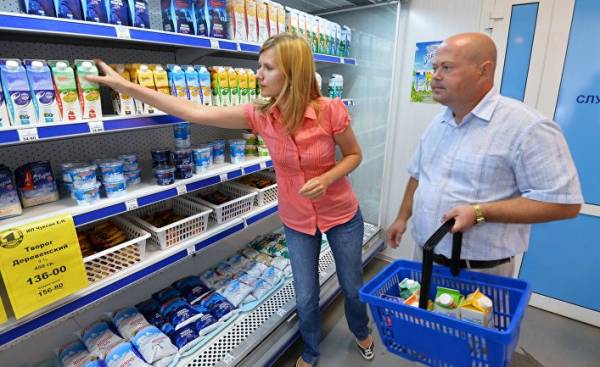
To preserve the health and the necessary number of beneficial bacteria in the body, it is not enough just to eat yogurt with probiotics. Columnist for BBC Future figured it out, passing one analysis.
It all started with the fact that you will not name differently as an ingenious invention. This fold-out sheet with a sticky note front and back, like a flat starfish.
The papers glued to the toilet seat. Fastened the sheet turns into a kind of hammock, which gets the sample for sampling.
Preparing for the procedure, I put on rubber gloves. Leaving your material in the “hammock”, I took a sample with a small spoon attached to the inner side of the blue cap from the vial.
Then I tightly screwed the lid and wrapped the plastic test tube in an ice pack prepared me in advance. Now the precious cargo was ready for delivery.
A drive I was going to Map My Gut company that promised me identify what microorganisms are lurking in the depths of my gut.
This analysis, I decided to take to the radio program bi-Bi-si “the Curious history of the Rutherford and fry”, in which he planned to tell the audience what percentage of the mass of the human body are bacteria.
The results of the various studies conducted in recent years indicate that the microorganisms living in our digestive system is much more important to our health and well-being than previously thought.
But I soon discovered that my own bacteria are not too flourishing, and that a certain diet can completely change our common life.
In the intestine of the average person lives on about a thousand different species of bacteria.
Their total number is difficult to determine, but the account is in the trillions, and almost all of them perform useful work for us.
The human genome consists of approximately 20 thousand genes, but living in our body the microorganisms in the totality of their approximately 500 times more.
This allows them to cope with quite a daunting task: to help digest food, produce vitamins and minerals and even prevent disease, join in groups and destroying pathogenic bacteria.
But this is only a small part of their work; really depends on who we are inside and out.
As I said ed young, author of “Comfort me” (I Contain Multitudes), “microbes help to build the human body, they shape and renew our bodies as we age”.
“Perhaps they can even influence our behavior and way of thinking. Numerous animal experiments have shown that the microorganisms in the gut can influence the mood, character and resistance to anxiety and stress,” he notes.
However, how these results are applicable to humans, we have yet to understand.
Surely we only know that the microbiomes of two people differ much more than their genomes.
The composition of microorganisms in the human body depends on the history of his illness, place of residence and diet.
Every person is different and can be very different even in close relatives.
That’s why I had to be emptied on a piece of paper and take a piece of biological samples.
I confess that, entering the office Tim Spector, Professor of genetics at the hospital of St. Thomas, to see the results, I’m a little nervous.
What I know about the mysterious inner world of his bacteria? What’s hiding in my colon?
To be honest, my analysis was worse.
“Your score is much below average. The variety you get 10% of the population with the worst results,” — said Spector with a barely noticeable hint of joy in his voice. Joy, experienced by scientist, to find any deviation from the norm.
He explained that diversity is one of the main factors influencing intestinal health.
The fact that different microbes perform different tasks, and the more diverse that workforce, the more benefit we get.
But not only that I lacked diversity, so also groups of bacteria that settled in my gut, were not the most friendly.
The analysis showed that I had 65 times more Clostridium perfringens than the average person, and 211 times more E. coli. Both of these bacteria can cause diseases of the gastrointestinal tract.
“These results indicate that you have a very unhealthy microbiome”, — stated in the document issued to me with the test results.
Of course, I could try to justify myself with the fact that it was a business trip and may have eaten something questionable.
However, Spector said that once the infection is unlikely to greatly shift the balance for the worse.
What about beneficial bacteria? Less than 100 bacteria can cause infectious diseases, while thousands of species of microorganisms living in the human gut, as told to writer Douglas Adams, “almost harmless”.
So how am I doing with those who are on my side?
At the beginning of the list of “most desirable” organisms are bacteria, such as Akkermansia and unpronounceable Christensenellaceae. Both help to prevent weight gain.
Methanobrevibacter promotes better assimilation of food, causing you eat less. Oxalobacter ensures the prevention of occurrence of kidney stones.
How many of these beneficial bacteria found in me? Zero.
So, I was not just ranked as the worst group, but prescribed my bowels a strict diet, promising to cancel it only if it is a good think about his behaviour and decide to change.
What can I do to improve your microbiome? Apparently, the most important thing is diversity.
The more varied your diet, the more types of bacteria living in your intestines.
Particularly useful for maintaining a healthy microbiome of fermented foods.
“People know about the live yoghurt, but the Eastern fermented milk drink called kefir is a completely different level: it is five times more microorganisms,” said I Spector.
The population of our guts will also be very happy to other fermented foods, including miso soup and kimchi (pickled cabbage).
If you have all of that sounds too exotic, keep in mind that healthy foods with a high content of dietary fiber is garlic, artichokes, bananas and whole grains.
And polyphenols contained in red grapes are a favorite food of the bacteria Akkermansia. I think this is a good reason to drink a glass of wine.
In the advertising of probiotics States that they help to increase the content of bacteria in the gut, but to actually spend money on them is hardly worth it.
Evidence that these bacteria stay in the body long enough to change the microbiome, too little.
However, it has been proven that they are useful for small and elderly patients and can be used to prevent stomach upset when taking antibiotics.
But my bowels they are unlikely to help.
Since I made this shocking discovery, I completely changed my diet. Of receipt of analysis results over a month has passed, and during all this time I didn’t eat meat.
Miso soup replaced my meatballs and kimchi — fish with potatoes. Despite the fact that the Bank with the kimchi smell, um… cool, my wife makes me keep it in the shed.
Only time will tell whether these changes have a lasting effect on my microbiome.
But I know that I am eating not only for yourself, but for the trillions of microorganisms inhabiting my body.
I hope this strict regime will not last too long.







